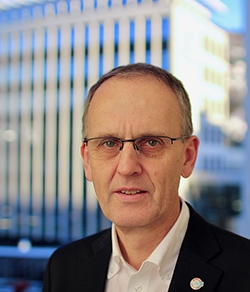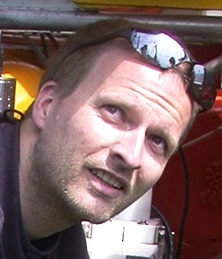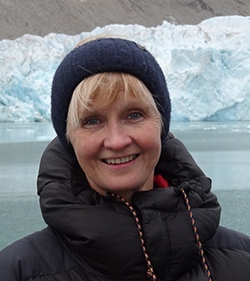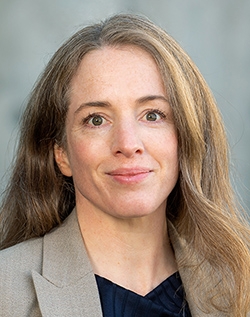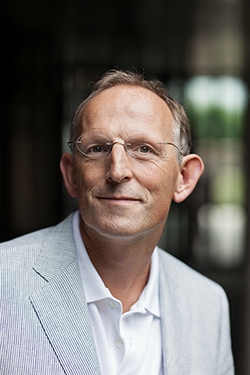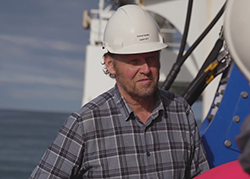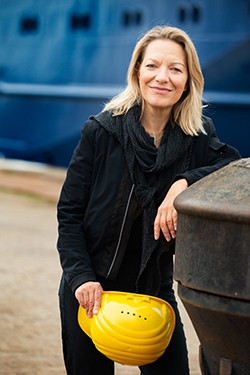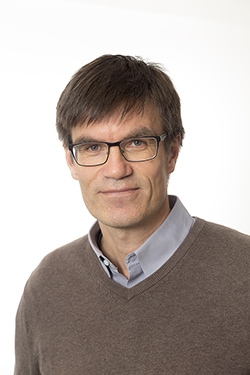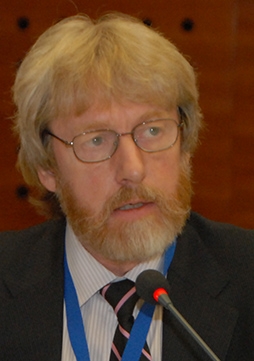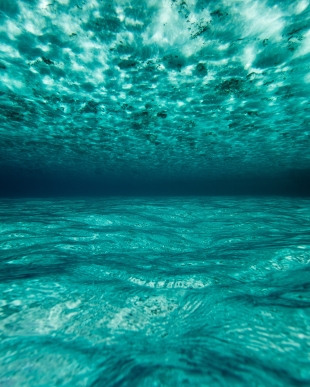
Subsea floor processes and a sustainable ocean
The VISTA program is a continuation of a more than 30-year long collaboration between Statoil (now Equinor) and The Norwegian Academy of Science and Letters.
On this background, the aim of the program is to support science that provides fundamental insight in:
- Basin analysis and efficient resource identification and utilization, or
- Future development solutions, or
- Sustainability, environment and low carbon solutions.
To accomplish this, two new centers have been established as VISTA-centers to host scientists from both academia and relevant business partners.
Center for Modeling of Coupled Subsurface Dynamics is located in Bergen (UiB) and NTNU VISTA CAROS - Centre for Autonomous Robotics Operations Subsea is located in Trondheim (NTNU).
The sea is affected by climate change. The subsea floor has opportunities for utilization of energy, mineral and water resources and can function as a storage for CO2. This also affects the exchange between the subsea floor and the ocean.
In order to manage the ocean's subsea floor and marine resources, research is required related to the mapping of resources, the interaction between the subsea floor and the ocean, and the importance of external influences on natural systems.
11.30 – 12.00: Coffee/ light lunch
12.00 – 12.15: Opening
Hans Petter Graver, President, The Norwegian Academy of Science and Letters
Ole Sejersted, President VISTA
12.15 – 12.35
The Deep-Seabed in relation to ocean circulation and the UN Decade of Ocean Science
Peter M. Haugan, Professor, Head of research, Institute of Marine Research
12.35 – 12.55: The energy transition and resources of the seabed - environmental risks of exploitation,
Matthias Haeckel, Professor, GEOMAR
12.55 – 13.15: Cold seepages, gas hydrates and climate change,
Karin Andreassen, Professor, UiT, The Arctic University of Norway
13.15 – 13.45: Coffee break
13.45 – 14.05: Hydrothermal circulation along the mid-ocean ridge systems
Inga Berre, Professor/Project leader VISTA CSD
14.05 – 14.25: Deep sea sediments and the carbon cycle – Industrial activity – A major concern?
Jack J. Middelburg, Professor, Utrecht University
14.25 – 14.45: Hydrothermal vents and deep sea mining – Industrial adventure?
Rolf Birger Pedersen, Professor, University of Bergen
14.45 – 15.00: Coffee break
15:00 – 15:20 Hydrothermal vents and deep sea mining - are we interfering with the “origins of life”?
Antje Boetius, Professor/Director AWI
15.20 – 15.45: Sustainable ocean research and exploitation – the future model for observing systems
Asgeir J. Sørensen, Professor/Project leader NTNU VISTA CAROS
15.45 – 16.05: Deep sea exploration – Legal aspects
Harald Brekke, Norwegian Petroleum Directorate/International seabed authority,ISA
16.05 – 16.45: Panel discussion
16.45 – 17.00: Aperitif
17.00 – 19.00: Dinner
Biographies
Peter M. Haugan is Programme Director with responsibility for global development at the Norwegian Institute of Marine Research. He is also professor of oceanography at the Geophysical Institute, University of Bergen. He has a broad experience in ocean, climate and energy research and served as the Chair of the Intergovernmental Oceanographic Commission (IOC of UNESCO) 2015-2019. He is cochair of the Expert Group of the High Level Panel for a Sustainable Ocean Economy (Ocean Panel) and presently works with the Norwegian Ministry of Foreign Affairs on Ocean Panel related matters.
Matthias Haeckel is a marine biogeochemist at the GEOMAR Helmholtz Centre for Ocean Research Kiel. He holds a PhD in Natural Sciences from Kiel University since 2000. In his research, he combines sea-going fieldwork with numerical modelling and high-pressure experiments to entangle and quantify early diagenetic processes and how they are altered by anthropogenic uses of the ocean, such as methane hydrate and oil & gas production, sub-seabed CO2 storage, deep-sea mining. Since 2015, he is coordinating the large collaborative European project MiningImpact on the environmental risks and impacts of deep-seabed mining.
Karin Andreassen is Professor in marine geology and geophysics at UiT – The Arctic University of Norway, and she is Director of the Norwegian Centre of Excellence “Arctic Gas Hydrates, Environment and Climate – CAGE”. Her research has focused on i) reconstructions of past ice sheets, their evolution and dynamics, and ii) investigating natural gas seepages in the Arctic and how these relate to gas hydrates, environment and climate.
Inga Berre, Professor/Project leader VISTA CSD
Inga Berre is Professor at the Department of Mathematics and Director of the Center for Modeling of Coupled Subsurface Dynamics at the University of Bergen. She is the principal investigator of the ERC Consolidator Grant "Mathematical and Numerical Modelling of Process-Structure Interaction in Fractured Geothermal Systems" (2021-2026). Inga Berre is chair of SIAM Geosciences (2020-2021) and has been chair of the European Energy Research Alliance Joint Program Geothermal (2018-2021) and co-chair of the SET-Plan Deep Geothermal Implementation Working Group (2019-2021). Since 2021, she has been member of the International KEM Expert Panel on behalf of the Dutch Ministry of Economic Affairs and Climate. At the University of Bergen, she is member of The University Board (2021-2025).
Jack J. Middelburg is Professor at Utrecht University, chair of the department of Earth Sciences and scientific director of the Netherlands Earth System Science Center. He pioneered the development of sediment biogeochemistry models and their coupling to water-column biogeochemistry models and the use of stable isotopes as deliberate tracers to elucidate the flow of carbon and nitrogen through benthic communities, from polar region to the tropics, from lakes to the deep-sea and from Archaea to higher consumers. He integrates concepts and approaches from microbial ecology, community ecology, biogeochemistry and organic geochemistry to better understand carbon cycling along ocean margins and in nearshore ecosystems and the role of organisms. Professor Middelburg has received multiple international awards and has been elected member of three learned societies (Royal Netherlands Academy of Arts and Sciences, Academia Europaea and European Academy of Sciences).
Rolf B. Pedersen is professor in geology at the University of Bergen. He is currently the director of Centre for Deep Sea Research and the Norwegian Marine Robotics Facility. The deep sea and the formation of oceanic lithosphere has been a central theme of his research. He has been leading many international sea-going expeditions focusing on seafloor hydrothermal activity, geobiological interactions and formation of deep-sea mineral deposits.
Professor Antje Boetius, Director of the Alfred Wegener Institute, Helmholtz Centre for Polar and Marine.
Antje Boetius is a polar and deep-sea researcher and director of the Alfred Wegener Institute Helmholtz Centre for Polar and Marine Research. As professor of geomicrobiology and head of the Joint Research Group for deep-sea ecology and technology at the Max Planck Institute for Marine Microbiology, she is involved in the MARUM cluster of excellence at the University of Bremen.
Boetius has participated in almost 50 expeditions on international research vessels. Her research focuses on the effects of climate change on the Arctic Ocean and the biodiversity of the deep sea. She is the recipient of the DFG's Gottfried-Wilhelm-Leibniz and Communicator Prizes, the German Environmental Award 2018 and was awarded the Federal Cross of Merit in 2019. As member of the "Leopoldina National Academy", she is heavily involved in science communication and dialogue with society.
Asgeir J. Sørensen, Professor/Project leader NTNU VISTA CAROS
Professor Asgeir J. Sørensen obtained MSc degree in Marine Technology in 1988 at NTNU, and PhD degree in Engineering Cybernetics at NTNU in 1993. In 1989-1992 Sørensen was employed at MARINTEK (SINTEF) as Research Scientist. In the years 1993-2002 Sørensen was employed in various positions in the ABB Group. In December 2002 Sørensen become co-founder of the company, Marine Cybernetics AS, where he was acting as President and Chief Executive Officer (CEO) until June 2010. In 2012, 2015 and 2017 Sørensen became a co-founder of the companies Ecotone AS, Eelume AS, SESx Marine Technologies AS and Zeabuz AS, respectively. Since 1999 Sørensen has held the position of Professor of Marine Control Systems at the Department of Marine Technology, NTNU. Sørensen is currently acting as key scientist and the Director of the Centre for Autonomous Marine Operations and Systems (NTNU AMOS) and NTNU VISTA CAROS. Sørensen has authored more than 300 scientific articles and book chapters, and he has graduated more than 100 MSc and 31 PhD candidates.
Harald Brekke is project coordinator and senior geologist in the Norwegian Petroleum Directorate (NPD). In 1996, after more than 10 years as an exploration geologist he became the project coordinator for the technical part of establishing the outer limits of the continental shelf of Norway in accordance with the UN Convention of the Law of the Sea. He was member of the Commission on the Limits of the Continental Shelf (CLCS) in New York from 1997 to 2012. He has given advice to many coastal states in the preparation of their submissions to the CLCS. He has been member of the Legal and Technical Commission (LTC) of the International Seabed Authority since 2013; currently holding the position as Chair of the Commission. In parallell with his work in the CLCS and the LTC, he has been the NPD coordinator for international Arctic research and is currently heavily involved in the NPD deep sea minerals program.
